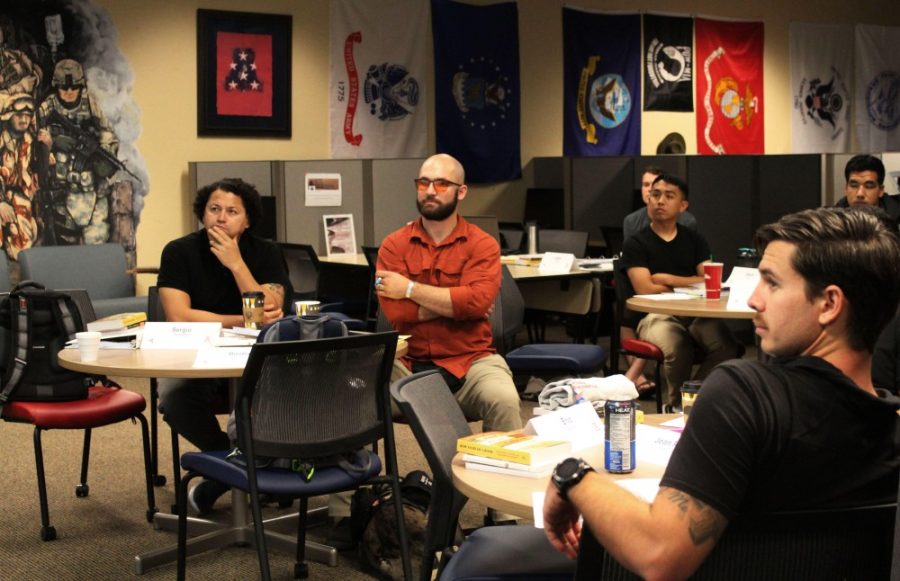A two-week program exclusively for veterans and active-duty military members has returned for its second year on the University of Arizona campus to help transition vets into college life.
Warrior-Scholar Project, which runs from July 13 through 29, is an independent organization that works with the UA to provide an “academic boot camp” that helps lead veterans toward degrees in higher education.
“We call it an academic boot camp because it takes a boot camp to transition from high school to military life, so we reason that it will take the same thing to transition a military person back to civilian life,” said Sidney Ellington, executive director of the program.
Buster Miscusi, 26, an active duty Marine Corps member, is participating in the 2018 program.
“A program like this helps you plug in with that purpose and asking those hard questions that need to be answered about what’s next and who we are and why we do what we do,” said Miscusi.
Many of the veterans joining the WSP have never been to college and are most likely first-generation college students, according to Ellington. The abrupt change in lifestyle can make college seem intimidating to veterans and active-duty members.
The WSP is a crash-course on college where veterans stay in dorms, meet with professors and experience student dining for free. They get a taste of the college experience while taking classes.
“What we do … the first week is liberal arts classes, and then the second week is STEM classes,” Ellington said.
Jason Guba, 22, is an active duty member of the Marine Corps. While excited to go through both the STEM and liberal arts portions, he knows what he needs to focus on.
“I know that humanities and history are my weak points so trying to identify where I’m struggling with reading and writing will help me when I actually tackle on the humanities and the liberal arts in a college setting,” Guba said.
Ellington hopes the program will serve as a bridge from active duty to civilian life and wants to see WSP participants apply to state and private colleges and universities instead of for-profit colleges.
“We are trying to say that they don’t have to settle; we want them to rethink what their future could be like,” Ellington said.
Cody Nicholls is the assistant dean of students for Military and Veteran Engagement at the UA. Nicholls was introduced to WSP in 2016 and paved the way for the two week program to be held on campus in 2016.
“Having the ability to engage with veterans in an academic setting prior to the first day of the semester is a tremendous opportunity for both the veteran and the University,” Nicholls said.
Arizona is not the first university to hold a WSP bootcamp on campus; it started at Yale in 2012. Since then, according to data from WSP’s 2017 national annual report, only three percent of “warrior scholars who enrolled in college after WSP have either postponed or did not finish their degree.”
That figure contrasts with rate of general population of veteran students who didn’t finish a four-year degree within six years, which was 44 percent, according to the annual report.
The project gets most of its funding from grants and private contributors. Per the annual report, total expenses from the program last year totaled $1,260,097. With the help of private contributors, the program has already expanded and is offered at 17 schools according to a recent press release.
Mike London, WSP’s chairman of the board, said in a preface to the groups annual report that he is confident he and others built a program that helps veterans who want to help themselves.
“We are witnessing a new class of leadership in formation which will have a tempered, compassionate and intelligent sense of self worth and community. These qualities will change how they think about themselves, how others think about them, and how we all will benefit,” London said.
Follow the Daily Wildcat on Twitter









